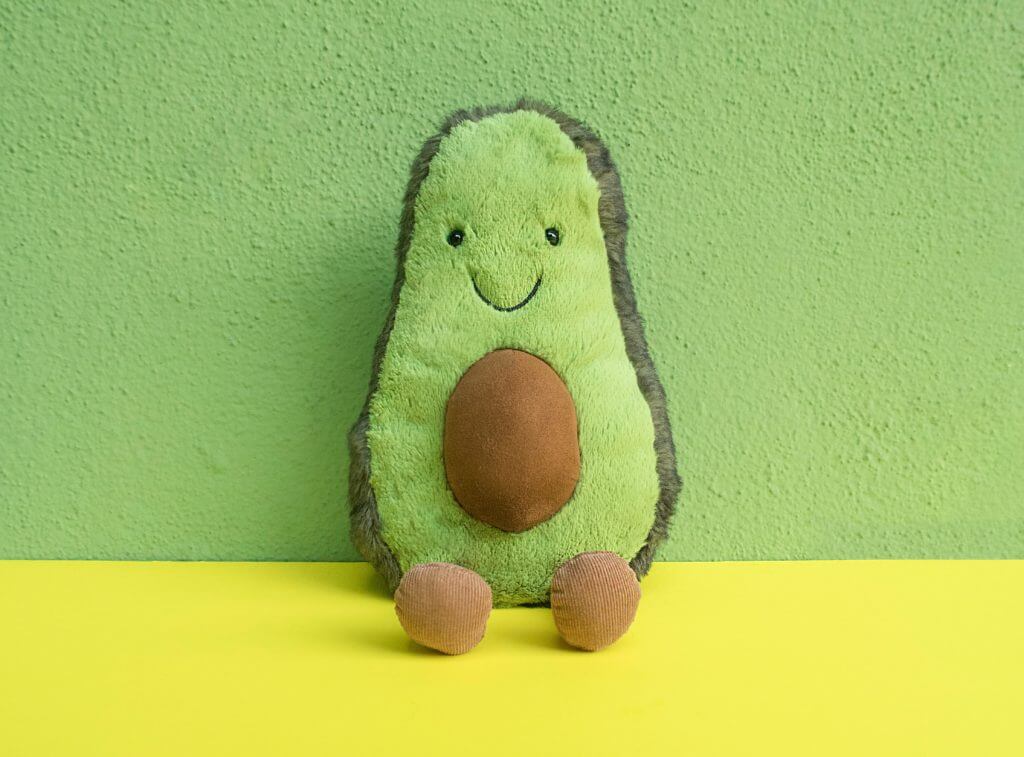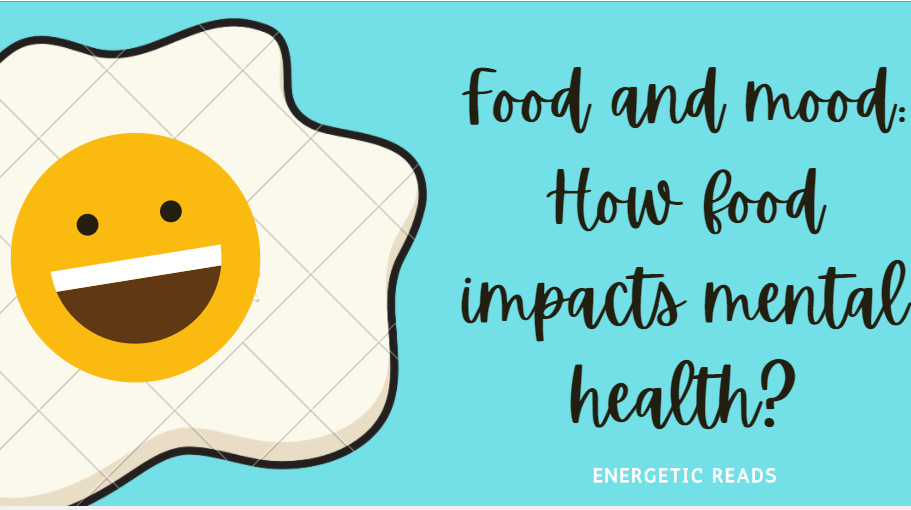All of us are conscious of the impact of food on our bodies, and we also follow a special diet when it comes to shaping our bodies. Food has effects on mental health too, which we can’t even identify sometimes. And ignoring them in the long term can cause serious mental health issues. Food and mood are interrelated; it is essential to build a healthy relationship to enjoy physical and mental health benefits.
Take care of your brain by providing the best fuel.
Our brain functions 24/7 and is an ultimate multi-tasker. And, there are different ways one can improve the function of the brain. Physical exercise and a good diet can improve brain health to a great extent. We choose the best fuel for our vehicles, so why not choose the best fuel, i.e., a well-balanced diet for our brain that functions 24/7. A simple change in eating habits can make our brain more efficient. Thus, this contributes to improving the mood by fighting mental health issues like depression and anxiety. The food we eat can create a significant impact on our mood.
How food impacts mental health?

Before discussing the impact of food on mental health and how food and mood are interrelated, we should know what to eat and what not to eat. As there are tons of diet plans available on the internet, it is getting more complicated. Having a well-balanced nutrient-rich diet can: improve your mood, boost energy levels, and provides the ability to think clearly.
To avoid confusion, we can look at how vitamins, minerals, etc., play their role in our brain’s healthy functioning, thus improving mental health and mood. This way, we can avoid confusion between different food items and choose the best for us.
Get the three macros: Protein, carbohydrates, and fats.
- Carbohydrates: Carbs aren’t evil, and they will not make you fat alone ( calorie surplus does that). Carbs should be part of your diet for the brain’s healthy functioning. Our brain – an ultimate multi-tasker that functions 24/7 is an energy-hungry organ. However, this organ is only 2 percent of the body’s weight but eats up to 20 percent of its total energy input. This energy comes from blood glucose, which comes from the carbohydrates we consume. Not having enough energy can make us feel tired and week. So, provide regular energy to your brain and body through food like vegetables, fruits, whole grains, legumes, etc. Fluctuations in blood sugar level can influence your mood, making you feel irritable, low, or even trigger anxiety symptoms. So, try to consume those foods that release energy slowly, like oats, nuts, seeds, etc., and keep the blood sugar level in check. Have small portions throughout the day to maintain the energy levels.
- Protein Power: Protein has many functions in our body (and it is not only for muscle growth. :P). So, after water, protein occupies most of our body weight since it is present in muscles, hair, nails, organs, and ligaments. Neurons in the human brain are essentially made of fat. Still, they communicate via protein, making it more evident why protein is an essential part of the diet. Amino acids(building blocks of protein) help regulate your thoughts and feelings. What you eat greatly influences which nerve chemicals will be dominant in your brain, affecting how you feel. Make sure you add some protein to your diet through food like lean meat, fish, dairy products, seeds of leafy amaranth, soy products, quinoa, etc. So, the brain requires carbohydrates for fuel and other nutrients for maintaining and repairing brain cells.
- Healthy Fats: Fats are also an essential part of our diet, creating an overall impact on physical and mental health. The human brain is nearly 60 % fat. Healthy fats promote the healthy functioning of the brain. Eating a low-fat diet and fatty junk foods can increase the risk of depression. Omega-3 and Omega-6 fats are essential for the brain. So, add healthy fats found in fatty fish, flaxseeds, walnuts, soybeans, peanuts, almonds, etc., to your diet.
These three macronutrients can together help in keeping the brain healthy. Let’s check out other ways through which food creates an impact on mental health.
Dehydration and Mental Health

Water can solve almost all your health problems, including mental health. Dehydration may enhance your risk of anxiety and depression. People who drank more water had a lower risk of anxiety and depression. Some even experience dehydration anxiety, where people usually fear that they’re not drinking enough water, and some even fear going anywhere without their water bottle. This chronic anxiety is associated with obsessive-compulsive disorder(OCD) and orthorexia. Water requirements vary from person to person. Have sufficient water to keep yourself hydrated. And, the need depends on diet, age, exercise, etc.
Brain-Gut connection
The gut, also known as the ” second brain,” relates to mental health. Our digestive system produces 90 percent of happy hormones (serotonin) and impacts our mood, digestion, brain function, sleep, and circadian rhythm. The feeling of tension, anxiousness is often felt in the gut. The digestion races up or slows down depending on the way we feel. A healthy digestive system also ensures that all the necessary vitamins, minerals, and nutrients are absorbing properly in our body. Keep your gut healthy with lots of fiber, water, and exercise. Exercise also boosts mood and helps in fighting anxiety and depression. Include lots of fruits, legumes, fermented foods, vegetables, whole grains, prebiotic foods to keep your second brain healthy and happy.
Vitamins and Minerals
A balanced diet can help you get proper vitamins and minerals. And it is essential for good physical and mental health.
- B- Vitamins: Not taking enough B1, B3, and B12 through the food you eat or supplements(in case of deficiencies) can make you feel tired, irritable, and low. Try to meet the requirements of B-Vitamins fish, meat, eggs, dairy, etc.
- Folate: Not getting enough folate can increase the risk of depression. However, there’s no clear evidence of whether poor diet, as a symptom of depression, causes folate deficiency or primary folate deficiency causes depression and its symptoms. It is better to protect yourself and get the required folate through citrus fruits, green vegetables, beans, etc.
- Iron: Iron deficiency can lead to various health problems, and also, its lack can cause fatigue and depression. Infantile anemia can cause the disturbance in the development of cognitive functions. Fight iron deficiency with poultry, fish, pulses, etc., and other iron-rich foods to maintain good mental health.
- Selenium: Low consumption of selenium is associated with lowered mood status. An appropriate amount of selenium in the diet can improve mood and reduces anxiety. Include brazil nuts, cereals, grains, dairy products, meat, fish eggs, etc., to your diet to meet selenium requirements. The deficiency of these few important vitamins and minerals in our food has an impact on our mental health. Make sure you provide yourself all the required vitamins and minerals for its healthy functioning. Consult your doctor if you face any serious problems. 🙂 Also, a good mental diet can create a huge impact on your mental health.





14 Comments
TanujaTakwal
December 27, 2020 at 4:35 pmVery much needed article in today’s time mental health harm many things internally and externally both so good article will have foods to reduce mental stress most important thing in life
Vandana Sharma
December 27, 2020 at 5:48 pmRight 😀 with good food and exercise we can boost our physical and mental health.
Rakhi Jayashankar
December 28, 2020 at 9:29 pmThose are some useful tips. Thanks for pointing out that carbs are not evil. Loved the post.
Suzan Khoja
December 27, 2020 at 4:42 pmThis is such a great post. I really needed this to make a happy and healthy balanced diet. Thank you so much🤗💖💖.
Ashwini
December 27, 2020 at 5:28 pmNice and informative. Thanks for sharing!! 🙂
Blisslifetips
December 27, 2020 at 6:07 pmMuch needed in this situation…Great writing and keep sharing.
Energetic reads
December 27, 2020 at 6:14 pmThank you so much . 🧡😀
Humaira
December 28, 2020 at 10:01 amEating healthy food promotes better mental health and well-being. The type of food intake and food quality would have an impact on brain function. Great thoughts.
Rakhi Jayashankar
December 28, 2020 at 9:39 pmThose are some useful tips. Thanks for pointing out that carbs are not evil. Loved the post.
Vandana Sharma
December 28, 2020 at 10:49 pmThank you 😀
Amisha Acharya
December 28, 2020 at 10:13 pmIf good food then only good mood. That’s what my mom used to tell me. Your article reminded me of just that
Vandana Sharma
December 28, 2020 at 10:52 pmThank you dear 😀
Mary Reshmi
December 29, 2020 at 9:18 amUsually I skips food , tanks for pointing out that it effects mental health.thanks for sharing
Manisha Garg
December 31, 2020 at 11:12 amVery informative post. Food has both physical and mental impact I have felt this too.